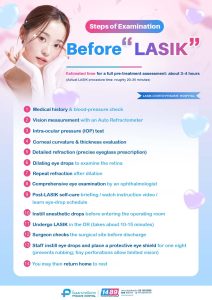- Dialysis Center
About
The Piyavate Hospital Dialysis Center offers a comprehensive range of hemodialysis services for patients with end-stage chronic kidney disease and acute kidney failure. Our services meet international quality standards, ensuring safe, high-quality treatment with compassionate and patient-centered care.
Medical Services
We specialize in treating severe kidney disorders using Computerized Hemodialysis Units, which allow for precise data recording and treatment planning to optimize patient outcomes. Our center provides complete hemodialysis services, from diagnosis and treatment to advanced dialysis procedures using the latest medical technologies.
Our dialysis system operates with ultrapure water filtration to remove metal contaminants and ensure infection-free dialysis solutions. The Piyavate Hospital Dialysis Center is equipped with state-of-the-art medical technology and a team of specialized nephrologists and internationally certified nurses.
To enhance patient comfort, our center is designed with a spacious and private setting, providing a relaxing atmosphere. Additionally, we are located near the Intensive Care Unit (ICU), ensuring immediate emergency response for critical conditions.
Our dialysis system operates with ultrapure water filtration to remove metal contaminants and ensure infection-free dialysis solutions. The Piyavate Hospital Dialysis Center is equipped with state-of-the-art medical technology and a team of specialized nephrologists and internationally certified nurses.
To enhance patient comfort, our center is designed with a spacious and private setting, providing a relaxing atmosphere. Additionally, we are located near the Intensive Care Unit (ICU), ensuring immediate emergency response for critical conditions.
Advanced Dialysis Standards
Our dialysis services use an ultrapure water purification system to eliminate contaminants and prevent bacterial infections in dialysis water.
We use pure sodium bicarbonate powder in our dialysis solutions to prevent bacterial growth and eliminate contaminants during dialysis.
We utilize synthetic high-flux dialyzers, designed to mimic natural kidney function and minimize inflammatory responses in the body.
These filters help reduce immune reactions since blood remains in contact with the dialyzer for extended periods.
These filters help reduce immune reactions since blood remains in contact with the dialyzer for extended periods.
Nephrologists carefully select the dialyzer size based on each patient’s unique condition.
Blood tests are conducted to measure waste removal efficiency, ensuring optimal dialysis adequacy.
At Piyavate Hospital Dialysis Center, we prioritize patient safety, comfort, and effective treatment, ensuring the best possible quality of life for individuals with kidney disease.
Blood tests are conducted to measure waste removal efficiency, ensuring optimal dialysis adequacy.
At Piyavate Hospital Dialysis Center, we prioritize patient safety, comfort, and effective treatment, ensuring the best possible quality of life for individuals with kidney disease.





